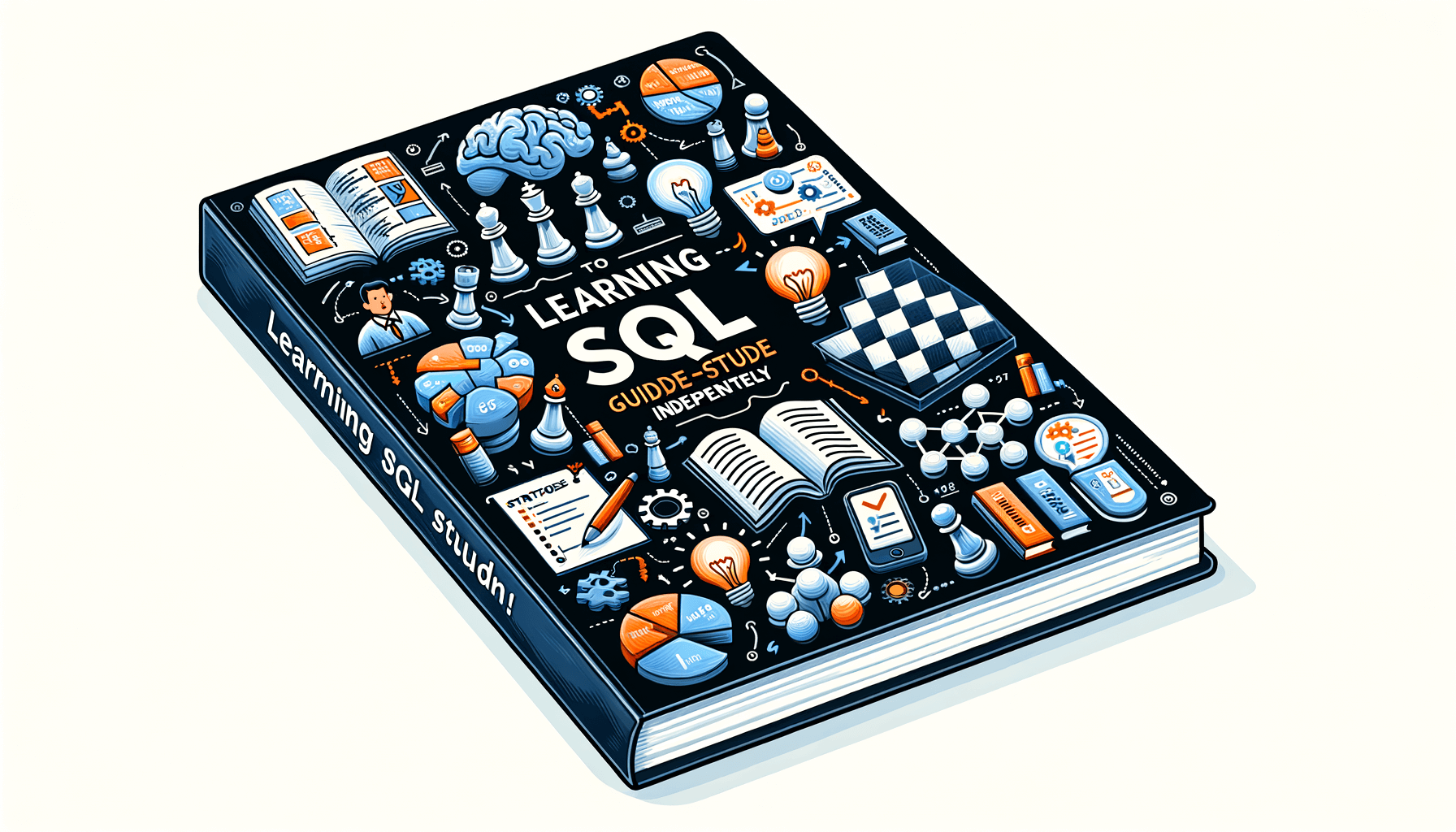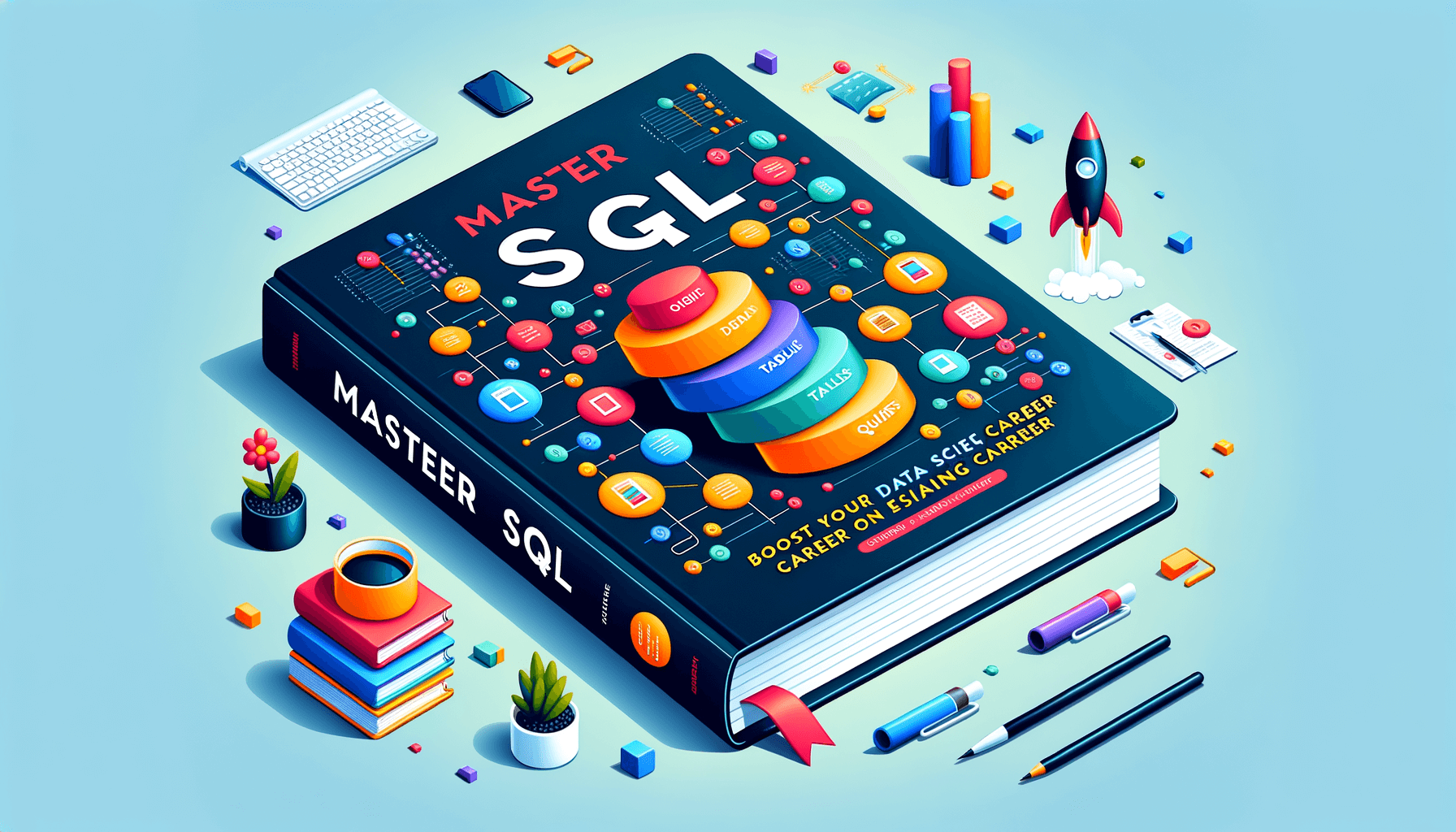A big variety of articles and resources

Master SQL Effortlessly: The Easy Way to Learn SQL
 Sia Author and Instructor
Learn SQL
Sia Author and Instructor
Learn SQL
9 minute read
Understanding SQL Basics
What is SQL?
Structured Query Language (SQL) is the standard language used to communicate with databases. It allows you to retrieve, update, and manage data stored in a relational database. SQL is essential for anyone looking to work with data because it provides a systematic way to interact with large datasets.
Key SQL Concepts
All important concepts in the SQL syllabus like SQL queries, syntax, datatypes, operators, expressions, comments, etc., will be explained in an easy way with examples to provide the best learning experience. Be it your school/college exams or dream job interview, this tutorial will help you get through it all!
- SQL Queries
- Syntax
- Datatypes
- Operators
- Expressions
- Comments
By the end of this course, you should have a sound understanding of SQL concepts and how to use SQL Server Management Studio.
Setting Up Your SQL Environment
For example, the SQL for Beginners Tutorial will teach you how to retrieve data from a database. In this 45-minute video, you’ll learn the basics of SQL, databases, and Relational Database Management Systems. The creator will walk you through installing Microsoft SQL Server and SQL Server Management Studio. Using these free tools, you can familiarize yourself with tables, primary keys, data types, and more. You can master SQL basics for beginners at your own pace. No credit card required. Login or sign up to start learning with SQLSkillz.
Effective Methods to Learn SQL
There are plenty of online resources that you can use to learn SQL. Let’s look at some effective ways to master this language.
Mastering SQL Syntax
Common SQL Commands
Understanding common SQL commands is crucial for any SQL user. These commands include SELECT, INSERT, UPDATE, and DELETE. Each command serves a specific purpose and is used to interact with the database in different ways. For instance, the SELECT command is used to retrieve data from a database, while the INSERT command adds new data.
Writing Efficient Queries
Writing efficient queries is essential for optimizing database performance. One way to achieve this is by using indexes, which can significantly speed up data retrieval. Additionally, it's important to avoid unnecessary columns in your SELECT statements and to use joins instead of subqueries when possible.
Avoiding Common Mistakes
Avoiding common mistakes can save you a lot of time and effort. Some frequent errors include forgetting to use the WHERE clause in UPDATE or DELETE statements, which can lead to unintentional data modification. Another common mistake is not properly handling NULL values, which can cause unexpected results in your queries.
Mastering SQL syntax involves understanding the nuances of each command and knowing how to write efficient queries. This is where a mastering MySQL performance and query optimization course can be incredibly beneficial.
Practical Applications of SQL
Data Analysis
SQL is a powerful tool for data analysis. Using SQL, you can access and interpret information on your website or business. This allows you to perform data analysis to solve problems and understand your audience. You can use SQL to filter, sort, and aggregate data, making it easier to draw meaningful insights.
Database Management
Database management is another critical application of SQL. With SQL, you can create, update, and delete data in a database. This is essential for backend development, where you need to manage the data that powers your applications. SQL also allows you to manage database permissions and ensure data integrity.
Real-World Examples
SQL is used in various real-world scenarios, such as:
- Back end development: Create, update, and delete data on the back end of a website.
- Digital marketing: Use SQL queries to find actionable insights about business processes.
- Accounting: Retrieve and analyze a business’s financial data.
- Database administration: Manage databases with SQL and database software.
Even though SQL can seem complicated at first, it is an easy programming language to learn. Its syntax is made up of common English words, so you can quickly understand the purpose of each query or command.
Advanced SQL Techniques
Joins and Subqueries
Joins and subqueries are essential for combining data from multiple tables. Mastering these techniques allows you to write more efficient and powerful SQL queries. There are several types of joins, including INNER JOIN, LEFT JOIN, RIGHT JOIN, and FULL JOIN, each serving a different purpose. Subqueries, on the other hand, are queries nested within another query, providing a way to perform complex operations in a single statement.
Stored Procedures
Stored procedures are precompiled collections of SQL statements that can be executed as a single unit. They help in reducing the amount of code sent to the database server, thus improving performance. Stored procedures also enhance security by encapsulating the business logic and providing controlled access to the data.
Performance Optimization
Performance optimization is crucial for ensuring that your SQL queries run efficiently. Techniques such as indexing, query optimization, and proper use of joins and subqueries can significantly improve query performance. It's important to analyze query execution plans and identify bottlenecks to optimize your SQL code effectively.
Efficient SQL queries can drastically reduce the time it takes to retrieve and manipulate data, making your applications faster and more responsive.
Earning SQL Certifications
Benefits of Certification
In most cases, you won’t need a college degree to work with SQL. However, you might want to showcase your coding skills on your resume. When looking for a position that requires knowledge of SQL, having a certification can increase your chances of getting hired.
Knowing SQL can get you a better job or improve the one you have. It's a crucial skill that will put you more in demand in the biggest technology companies in the IT industry, and make your software life easier, that's why it's so popular and backed by Oracle.
Popular SQL Certifications
Fortunately, you can easily gain a SQL certification online. Coursera’s Introduction to Structured Query Language teaches you how to create a MySQL database. Once you complete the course, you’ll receive a certificate.
Another way to get certified in SQL is to purchase a course on Udemy. In the Complete SQL Bootcamp, you’ll learn about analyzing data, creating tables and databases, and more.
Preparing for Certification Exams
Keep in mind that this is the second level in the Web Applications for Everybody Specialization. To get up to speed, you’ll have to first take the Building Web Applications in PHP course. If you’re already familiar with PHP, HTML, and CSS, feel free to sign up for the SQL lessons.
Once you learn about these processes, you can test your new knowledge with practice exercises. As you can see, there’s no shortage of online courses you can take to learn SQL. All you need to do is find the one that suits your needs.
Resources to Continue Learning SQL
Continuing your SQL education is crucial for staying up-to-date with the latest trends and techniques. Here are some valuable resources to help you on your journey:
Books and Articles
Books and articles are timeless resources for deepening your SQL knowledge. Some highly recommended books include "SQL for Dummies" and "Learning SQL" by Alan Beaulieu. Articles on platforms like Medium and Towards Data Science can also provide fresh insights and advanced tips.
Community Forums
Engaging with community forums can be incredibly beneficial. Websites like Stack Overflow and Reddit have active SQL communities where you can ask questions, share knowledge, and learn from others' experiences. Participating in these forums can accelerate your learning process.
Advanced Courses
For those looking to take their skills to the next level, advanced courses are a great option. Websites like Coursera, Udemy, and Pluralsight offer specialized courses that cover complex topics in detail. For instance, you can find courses on performance optimization and advanced querying techniques.
sqlskillz.com vs udemy.com: master sql basics, perfect for beginners. learn at your own pace. no credit card required. login or sign up to start learning.
If you're eager to deepen your SQL knowledge, our website offers a wealth of resources to help you on your journey. From comprehensive courses to expert guidance, we have everything you need to become a SQL specialist. Don't wait—visit us today and start advancing your skills!
Conclusion
Mastering SQL might seem daunting at first, but with the right approach and resources, it can be an effortless journey. By leveraging online courses, YouTube tutorials, and practice exercises, you can quickly grasp the fundamentals and advance to more complex concepts. SQL's syntax, which closely resembles common English, makes it accessible even for beginners. Whether you're aiming to enhance your data analysis skills or prepare for a career in backend development, learning SQL is a valuable investment. With consistent practice and the right guidance, you can become proficient in SQL and unlock new opportunities in the tech world.
Frequently Asked Questions
What is SQL and why should I learn it?
SQL, or Structured Query Language, is a programming language designed for managing and manipulating databases. Learning SQL is essential for data analysis, database management, and various other applications in technology and business.
How long does it take to learn SQL?
The time it takes to learn SQL can vary depending on your background and the resources you use. Generally, with consistent practice, you can learn the basics in a few weeks and become proficient in a few months.
Can I learn SQL without any prior programming experience?
Yes, SQL is considered one of the easier programming languages to learn because its syntax is similar to English. Many beginners start with SQL as their first programming language.
What are some effective ways to learn SQL?
Effective methods to learn SQL include taking online courses, watching YouTube tutorials, and practicing with exercises and real-world projects. Combining these methods can help reinforce your learning.
Are there any certifications for SQL?
Yes, there are several certifications for SQL, including Microsoft's SQL Server certification and Oracle's SQL certification. These certifications can enhance your resume and validate your SQL skills.
What are the practical applications of SQL?
SQL is used in various practical applications such as data analysis, database management, and backend development. It is a valuable skill for roles in data science, software development, and IT.





